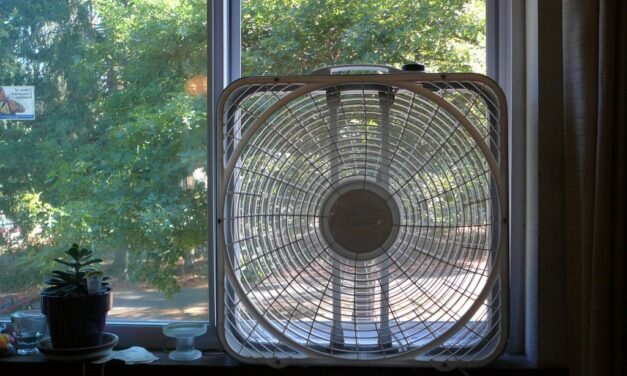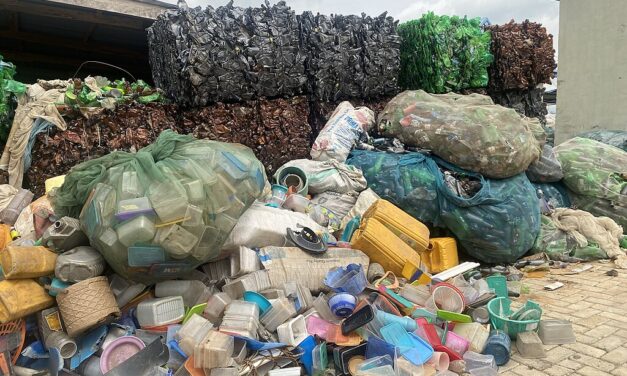Category: Health News
2022: A New Year of Hope and Healing
Posted by Sheree Crute | Jan 7, 2022 | COVID-19, Health & Wellness, Health News | 0
Rural Black Women Turn to Each Other, Mutual Aid a...
Posted by Connie Green Freightman | Nov 12, 2020 | COVID-19, Family, Health & Wellness, Health News, Ties, Top Feature | 0
Polycystic Ovary Syndrome: Here’s What You Should ...
Posted by Sheree Crute | Sep 26, 2020 | Health News, Top Feature, Uncategorized | 0
Coronavirus: How to Prevent Infection and Prepare ...
Posted by Sheree Crute | Mar 20, 2020 | Health & Wellness, COVID-19, Health News, Top Feature | 0
Hair Dye and Black Women’s Breast Cancer Risk: It&...
Posted by Sheree Crute | Jan 24, 2020 | Beauty, Environmental Health, Health & Wellness, Health News, Top Feature | 0
A Closer Look at ER Wait Times
by Fierce Contributor | Jul 8, 2024 | Health & Wellness, Health News | 0
Long ER wait times are problems for patients and hospitals overburdened by serving as alternatives to doctor’s offices and urgent care facilities.
Read MoreSurviving Heatwaves: How to Stay Cool When It’s Hot
by Fierce Contributor | Jun 24, 2024 | Health & Wellness, Environmental Health, Health News | 0
With temperatures soaring near 100 degrees or more around the country, experts are warning people...
Read MoreThe Scorching Truth: Extreme Heat is a Wake-Up Call to Act on Climate Change
by Fierce Contributor | Jun 24, 2024 | Health & Wellness, COVID-19, Environmental Health, Health News | 0
Heat waves cause or exacerbate a host of illnesses. Air quality is generally worse during extreme heat — a wake-up call to tackle the climate crisis head on.
Read MoreSelling a Mirage: The Delusion of Advanced Plastic Recycling Using Pyrolysis
by Fierce Contributor | Jun 22, 2024 | Health & Wellness, Environmental Health, Health News | 0
Here’s an inconvenient truth: Not much is being recycled at all, nor is the pyrolysis technology capable of curbing the plastic crisis. Not now. Maybe not ever.
Read MoreHow to Mend the Bias on Older Women’s Health
by Fierce Contributor | Jun 22, 2024 | Aging Fiercely!, Health & Wellness, Health News, Top Feature | 0
Medical research has shortchanged women for decades, leaving physicians without critically important information about how to best manage older women’s health.
Read MoreAir in Louisiana’s Cancer Alley Is Even Worse Than Expected, Real-Time Data Show
by Fierce Contributor | Jun 20, 2024 | Health & Wellness, Environmental Health, Health News | 0
Ethylene oxide levels in the heart of Louisiana’s Cancer Alley are more than double the threshold above which the EPA considers cancer risk to be unacceptable.
Read More‘Creamy Crack’ — Why Relaxers Are Still Being Pushed on Black Women
by Fierce Contributor | Jun 13, 2024 | Beauty, #Trending, Health & Wellness, Health News, News, Top Feature | 0
Linda Villarosa spent a year going to the root of the hair relaxer problem. Here are takeaways on why Black women are being harmed — and what’s being done.
Read MoreThe Chicken and Egg Problem of Fighting Another Flu Pandemic
by Fierce Contributor | May 31, 2024 | Health & Wellness, Health News | 0
Avian flu infections in multiple species far and wide raise the threat that further mutations could create a virus that spreads from human to human through airborne transmission. If they do, pandemic prevention starts with the egg — or alternatives still under research.
Read MoreUnderstanding Wendy Williams’ Health and What It Means for You
by Yanick Rice Lamb | Feb 24, 2024 | Health News, News, Top Feature | 0
By Yanick Rice Lamb FierceforBlackWomen.com Wendy Williams says she has been touched by the outcry...
Read MoreA Guide to What Should Happen at Your OB-GYN Visit — and What Shouldn’t
by Fierce Contributor | Sep 23, 2023 | Health & Wellness, Health News, Top Feature | 0
Arming yourself with information about OB-GYN visits can help you decide what you are and are not comfortable with, and give you an opportunity to speak up.
Read MoreArtificial Intelligence May Influence Whether You Can Get Pain Medication
by Fierce Contributor | Aug 30, 2023 | Health & Wellness, Health News, Top Feature | 0
Artificial intelligence raises concerns of bias, accuracy and faulty opioid screening that threatens patient care and doctors’ ability to practice medicine.
Read MoreA Striking Gap Between Deaths of Black and White Babies Plagues the South
by Fierce Contributor | May 24, 2023 | Health & Wellness, Family, Health News, Parenting, Ties | 0
In the South, infant mortality is by far the highest in the country, with Mississippi’s rate of 8.12 deaths per 1,000 live births ranking worst.
Read More
Advertising














